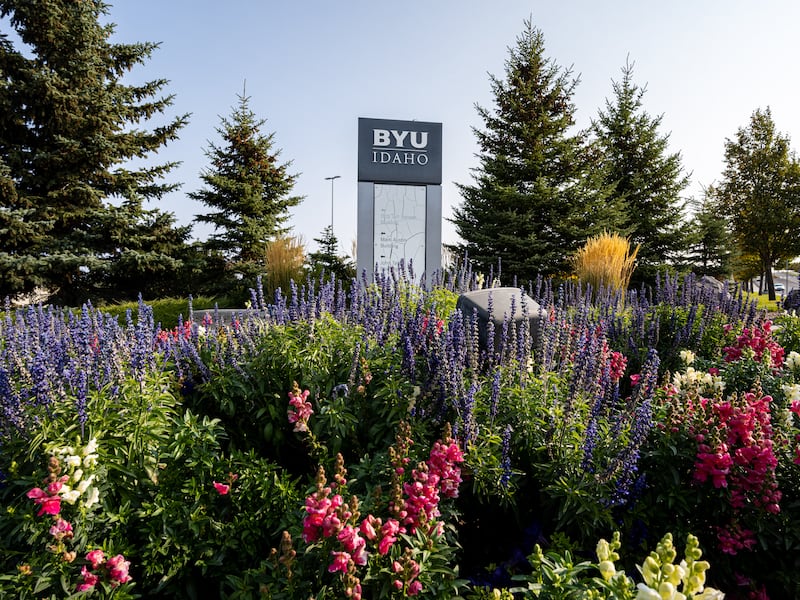Plasma collections companies are paying more for plasma from people who have recovered from COVID-19 — much more — and one university is threatening to suspend students who intentionally try to get sick so they can make more money from plasma donations.
Brigham Young University-Idaho, located in an area experiencing one of the largest current outbreaks of COVID-19, issued the warning on Monday in response to rumors that some people have intentionally exposed themselves or others to the virus.
Grifols USA, one of America’s largest plasma collection centers, operates two donation centers in Rexburg, Idaho. Grifols is offering $100 per donation, so students accustomed to earning $55 per week for two donations now can make $200 per week if they have recovered from COVID-19.
BYU-Idaho’s statement to students said it is deeply troubled by accounts of intentional exposure.
“The university condemns this behavior and is actively seeking evidence of any such conduct among our student body,” the school’s statement said. “Students who are determined to have intentionally exposed themselves or others to the virus will be immediately suspended from the university and may be permanently dismissed.”
On Sept. 25, BYU-Idaho warned students it might have to shut down in-person instruction because of an increase of active COVID-19 cases in Madison County. The number of cases has continued to rise. Rexburg has 122.6 daily cases per 100,000 residents, currently the highest rate in the nation, according to a New York Times database.
Grifols spokeswoman Vlasta Hakes said the BYU-Idaho statement was the first time the company had heard a rumor of students intentionally exposing themselves to the virus.
“We have not heard that anybody is doing that,” she said. “We absolutely ask that nobody intentionally gets sick. That’s not something we would support, nor do we know that it is something actually is happening. In our centers, we have not heard that anybody is doing that. We have not heard that from our donors.”
Grifols is evaluating its fee structure.
“We’re looking at whether we want to look at a different fee structure to minimize students trying to do this, if this is actually true,” Hakes said.
Grifols is collecting plasma from recovered COVID-19 patients to harvest antibodies as part of an international effort to develop an anti-coronavirus hyperimmune intravenous immunoglobulin to treat hospitalized patients with the disease. Clinical trials on the medicine began last week in 18 countries on five continents, according to a news release issued by the National Institutes of Health.
The medicine includes the antiviral remdesivir and a highly concentrated solution of antibodies that neutralize SARS-CoV-2 developed from the plasma collected by Grifols and other companies.
BYU-Idaho said that the pandemic has created real physical, emotional and financial strains for its campus community.
“The contraction and spread of COVID-19 is not a light matter. Reckless disregard for health and safety will inevitably lead to additional illness and loss of life in our community. As BYU-Idaho previously cautioned, if recent trends in Idaho and Madison County continue, the university may be forced to move to a fully remote instruction model. We urge all members of the campus community to act respectfully and responsibly by observing all public health and university protocols and placing the well-being of others above personal benefit or convenience.”
The university said it also stands ready to help.
“There is never a need to resort to behavior that endangers health or safety in order to make ends meet,” the statement said.
BYU-Idaho, BYU, BYU-Hawaii and Ensign College announced in May that they had turned down the $54.1 million in federal aid through the Coronavirus Aid, Relief, and Economic Security Act. The schools, all owned and operated by The Church of Jesus Christ of Latter-day Saints, instead have used private funds to help students with pandemic-related financial issues.
Hakes said plasma donations have fallen during the pandemic because donors must be healthy and because of concerns about spreading the disease. The two Grifols locations in Rexburg, like those around the nation, require face coverings, moved donating stations farther apart to observe proper physical distancing, monitor donors’ temperatures on arrival, installed plexiglass to separate donors and enhanced cleaning, Hakes said.
Plasma includes therapeutic proteins and antibodies but, because it is mostly water, the body quickly regenerates it. A donor can give plasma up to twice a week with a full day between donations.


